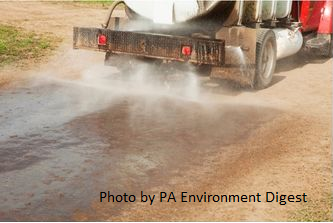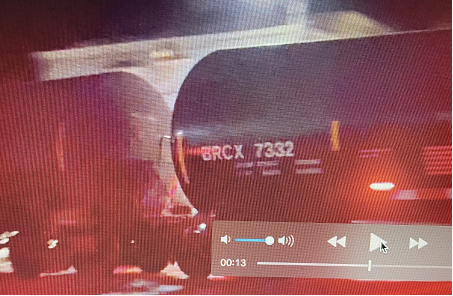
An Impending Mess: DRBC and the Media Spin the New Fracking Rules
December 12, 2022
Agency Clarifies Frack Waste Ban in Delaware River Watershed
April 30, 2023UPDATED April 23: The DRBC filed a motion to dismiss the DCS complaint (see below), which DCS has voluntarily accepted. Why has DCS accepted? Because the DRBC has conceded 90% of what we were asking for, without us having to go to court! This is a huge win! The voluntary dismissal document states:
“DRBC agrees that its regulation prohibits the discharge to waters or land within the Basin of all HVHF and HVHF-related wastewater, regardless of the type of well at which the wastewater is generated. This is the interpretation advocated for by DCS. DRBC is implementing and will continue to implement the regulation in this manner”.
PRESS RELEASE
Download this Press Release as a pdf.
Read about the DCS lawsuit in the PA Environment Digest Blog.
Contact: Barbara Arrindell, Director@damascuscitizens.org, 845-252-6677
DCS Requests Court to Void DRBC Wastewater Exemptions
NARROWSBURG, NY — Damascus Citizens for Sustainability (DCS) has filed suit in the United States District Court for the Eastern District of Pennsylvania to challenge the Delaware River Basin Commission’s (DRBC) December 7, 2022 issuance of final rules governing oil and gas wastes and wastewater. DCS maintains that the DRBC has violated its own rule-making procedures and the directives of its formative Compact and, as a result, “lowered the standard of protection for Basin residents below what has existed for years, and created a regulatory mess that essentially makes its new rules almost meaningless.”
DCS requests as remedy that what DCS terms “extra-regulatory exemptions” be declared void, and/or that the court either direct the DRBC to undertake a new rulemaking completely prohibiting import of drilling-related wastewater into the river basin, or issue such a prohibition itself.
DCS points out that the DRBC failed to include the challenged exemptions in the rules formally proposed and made available for public comment in November of 2021, and instead only published them on December 7, 2022 after the comment window had closed and all public input had finished.
These extra-regulatory exemptions have the impact of substantially narrowing the scope of the DRBC’s rules to exclude so-called “conventional” wells. In contrast, the DRBC’s November-proposed rules included any wastewater from oil and gas wells using high-volume hydraulic fracturing. The new term “conventional wells” in the DRBC extra-regulatory documents appears to refer to wells that target layers usually shallower (and thus closer to drinking water supplies) than the Marcellus shale. This is despite the fact that the fracking used to exploit such other target formations is the same as the method used for Marcellus fracked wells and the wastewater contains similar toxins. The “conventional” definition is borrowed from the laws of Pennsylvania, only one of the four states affected, yet now would apply to all four Basin states.
The exemptions also specifically say that wastewater from such “conventional” wells could be accepted for road-spreading operations—which create widespread pollution via runoff and aeration of dust, polluting the Delaware River basin for all local and downstream stakeholders.
DCS argues that these extra-regulatory exemptions should be voided on multiple grounds. These include: failure to conform to DRBC rulemaking protocol; that by creating a class of non-regulated “conventional” wells – especially by using Pennsylvania’s definition – the DRBC has muddled what its rules address to such an extent that the distinction between what is regulated and not regulated is unconstitutionally vague; lowering standards of protection in the Basin as a whole that are lower than those of some individual states contrary to the Compact; and creating unequal protections for Basin water users particularly those closest to fracking and related waste disposal activity, in violation of the DRBC Compact’s mandate.
Commenting on DCS’s suit, Director Barbara Arrindell said “The DRBC’s mandate and reason for existence is to keep the Delaware Basin clean – inviting toxic radioactive waste into the basin is not what DRBC should be doing.”
For a copy of the legal brief and exhibits:
Download a copy of the Complaint as a pdf.
Download a copy of the Complaint Exhibits as a pdf.




